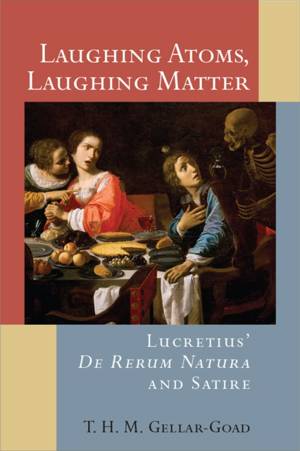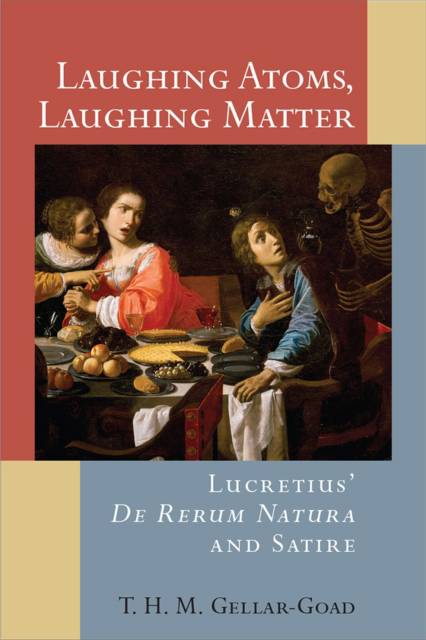
- Retrait gratuit dans votre magasin Club
- 7.000.000 titres dans notre catalogue
- Payer en toute sécurité
- Toujours un magasin près de chez vous
- Retrait gratuit dans votre magasin Club
- 7.000.000 titres dans notre catalogue
- Payer en toute sécurité
- Toujours un magasin près de chez vous
Laughing Atoms, Laughing Matter
Lucretius' de Rerum Natura and Satire
T H M Gellar-Goad
Livre relié | Anglais
101,95 €
+ 203 points
Description
Laughing Atoms, Laughing Matter: Lucretius' De Rerum Natura and Satire offers the first comprehensive examination of Roman epic poet Lucretius' engagement with satire. Author T. H. M. Gellar-Goad argues that what has often been understood as an artfully persuasive exposition of Epicurean philosophy designed to convert the uninitiated is actually a mimesis of the narrator's attempt to effect such a conversion on his internal narrative audience--a performance for the true audience of the poem, whose members take pleasure from uncovering the literary games and the intertextual engagement that the performance entails. Gellar-Goad aims to track De Rerum Natura along two paths of satire: first, the broad boulevard of satiric literature from the beginnings of Greek poetry to the plays, essays, and broadcast media of the modern world; and second, the narrower lane of Roman verse satire, satura, beginning with early authors Ennius and Lucilius and closing with Flavian poet Juvenal. Lucilius is revealed as a major, yet overlooked, influence on Lucretius. By examining how Lucretius' poem employs the tools of satire, we gain a richer understanding of how it interacts with its purported philosophical program.
Spécifications
Parties prenantes
- Auteur(s) :
- Editeur:
Contenu
- Nombre de pages :
- 290
- Langue:
- Anglais
Caractéristiques
- EAN:
- 9780472131808
- Date de parution :
- 14-02-20
- Format:
- Livre relié
- Format numérique:
- Genaaid
- Dimensions :
- 152 mm x 231 mm
- Poids :
- 521 g







